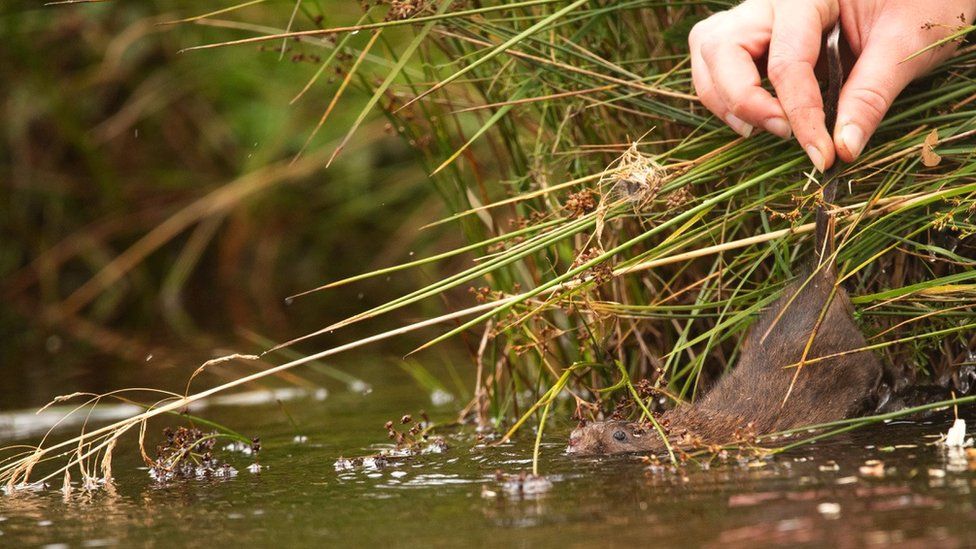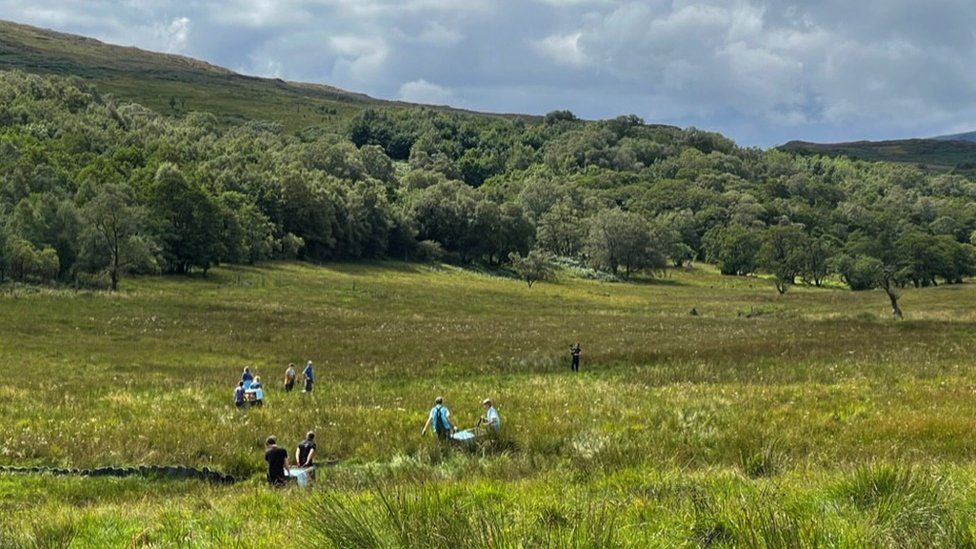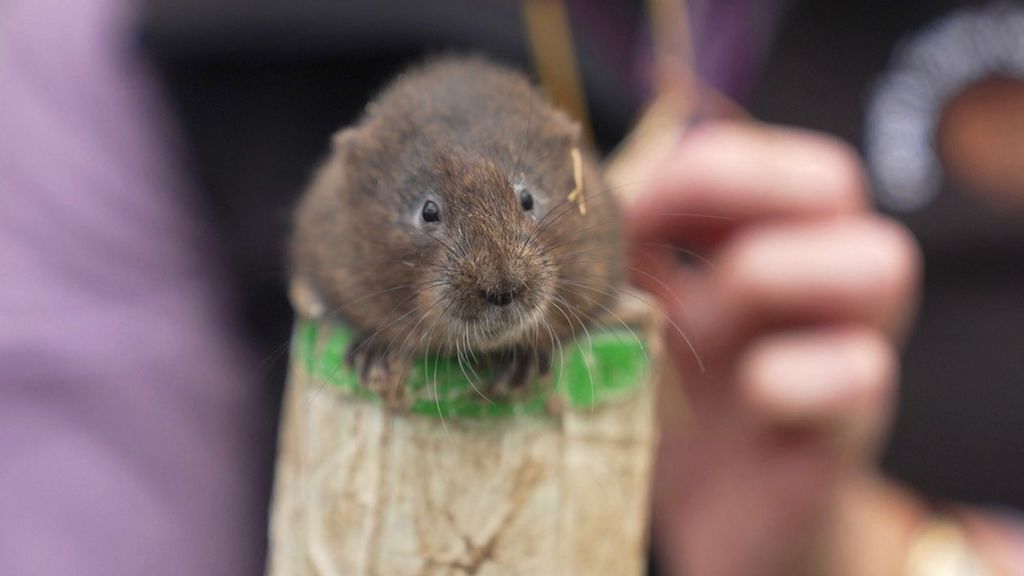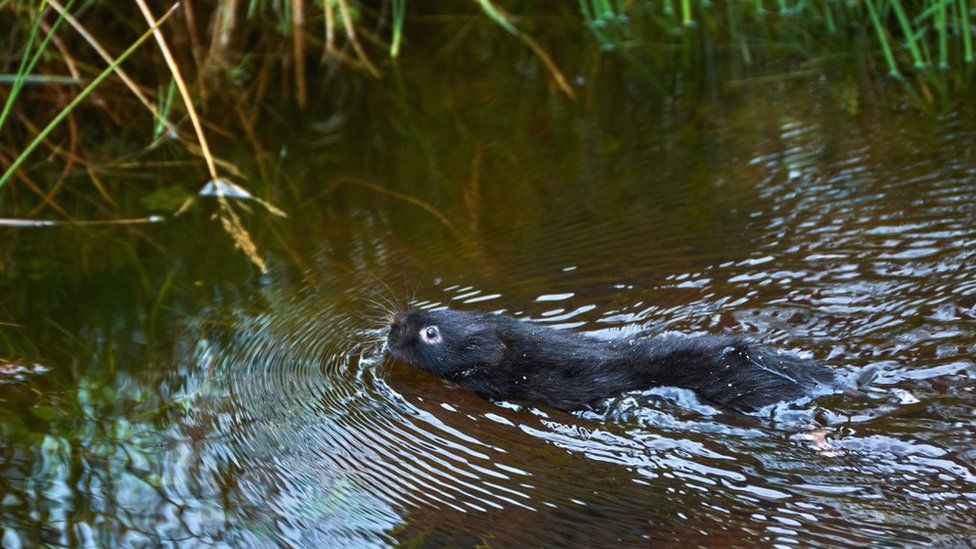More than 200 water voles are released in restored habitat in Cumbria, having previously been wiped out.
 Image source, RSPB
Image source, RSPBMore than 200 captive-bred water voles have been released at a secret location close to Haweswater, as part of an attempt to create a thriving population of the endangered species in Cumbria.
Conservationists and volunteers carried the semi-aquatic mammals to their new home in temporary soft-release pens, to allow them a few days to acclimatise.
Although, 10 of the older ones were freed directly into the water.
Nearly wiped out in recent decades, the species was widespread across the UK.
This reintroduction is the first in the Lake District.

Image source, Victoria Gill/BBC
Volunteers will check the pens in the coming days, eventually removing them when the newly wild voles have moved into their own burrows.
This release is the culmination of more than two years of work restoring a river valley in the Haweswater Reserve, which is managed by the Royal Society for the Protection of Birds.
According to the charity, in the past century the UK has seen an estimated water-vole population of eight million drop to about 132,000, as the species disappeared from 94% of the sites it had occupied.
One of the key projects in Haweswater has been controlling the population of American mink, first brought to Britain in the 1920s for fur farms.

Image source, Kevin Church/BBC
According to the People’s Trust for Endangered Species, they began escaping those farms and were breeding in the wild by the mid-1950s.
The water vole’s defences, diving beneath the water and kicking up a screen of dirt or hiding in their burrows, were insufficient. A female mink can fit into water-vole burrows and wipe out entire colonies and populations along waterways.
RSPB conservation scientist Dr Ashely Lyons said the water vole had become a “missing piece” of this landscape.
“Through their burrows, they dig up the soil and bring nutrients to the surface, which helps vegetation,” she said.
“They also nibble plants, leaving room for other plants to come through. And they’re an important part of the food chain. It’s fabulous to see them back here.”

Image source, RSPB
The project, a partnership between the Eden Rivers Trust, Cumbria Connect and the Environment Agency, will see a total of about 350 voles released at two locations.
It was exciting to set them free in the Cumbrian landscape, Dave Greaves, from the Eden Rivers Trust, said.
“It’s lovely to see them back where they should be,” he said.